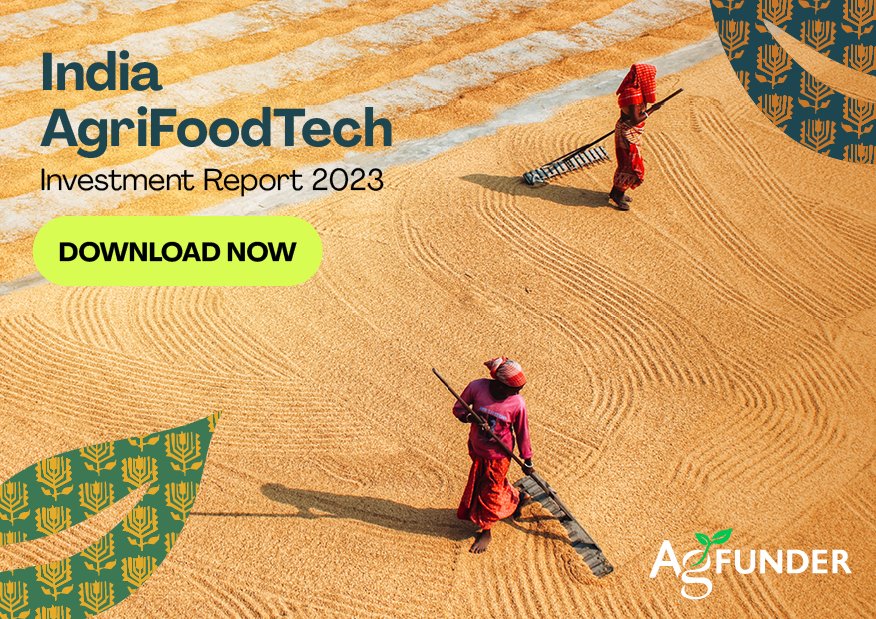New report shows India agrifood tech funding dipping to pre-pandemic levels
This reduction aligns closely with the global decline in agrifood tech investments, which fell by 50 per cent year-over-year
AgFunder and Omnivore have released the sixth India AgriFoodTech Investment Report, detailing just under $1 billion in startup investment, a 60 per cent year-over-year decline from $2.4 billion in 2022. However, India maintained a steady deal activity with 129 deals, only slightly fewer than in 2022. This reduction aligns closely with the global decline in agrifoodtech investments, which fell by 50 per cent year-over-year.
Unlike the global market, however, the total funds raised by Indian agrifood startups were not far off from the $1.3 billion garnered in pre-Covid 2019, suggesting a normalisation of market conditions after a period of excessive valuations. A concerning trend is the limited participation of agrifood investors, with Omnivore being one of the few remaining, alongside generalist and climate-focused VCs. This scenario underscores the need for more committed investors across all stages.
Below are some of the highlights of the report:
In 2023, Indian agrifood tech startups raised $940 million across 129 deals, down 60 per cent from 2022.
The number of deals remained almost flat with 129 closing in 2023 compared to 133 deals in 2022, indicating smaller deal sizes given the steep decline in dollars raised.
More early-stage deals closed in 2023 than 2022 indicating continued interest by investors in the category but at much lower valuations than in previous years.
The median deal sizes dropped significantly year-on-year across stages and most dramatically at the late stages: 50 per cent at the early stages (Seed and Series A), 39 per cent at the growth stages (Series B and C) and 89 per cent at Series D and later.
Both AgFunder and Omnivore continue to explore deals that push beyond traditional agrifood boundaries into adjacent sectors, highlighting the growing interconnectedness of food, agriculture, and other industries like climate tech. Despite a decrease in the median deal sizes, the willingness to invest persists, although at lower ticket sizes, with Ag Marketplaces and eGrocery receiving the most attention yet again. However, there are fewer players in the market than before, reflecting Power Law dynamics.
This reduction aligns closely with the global





